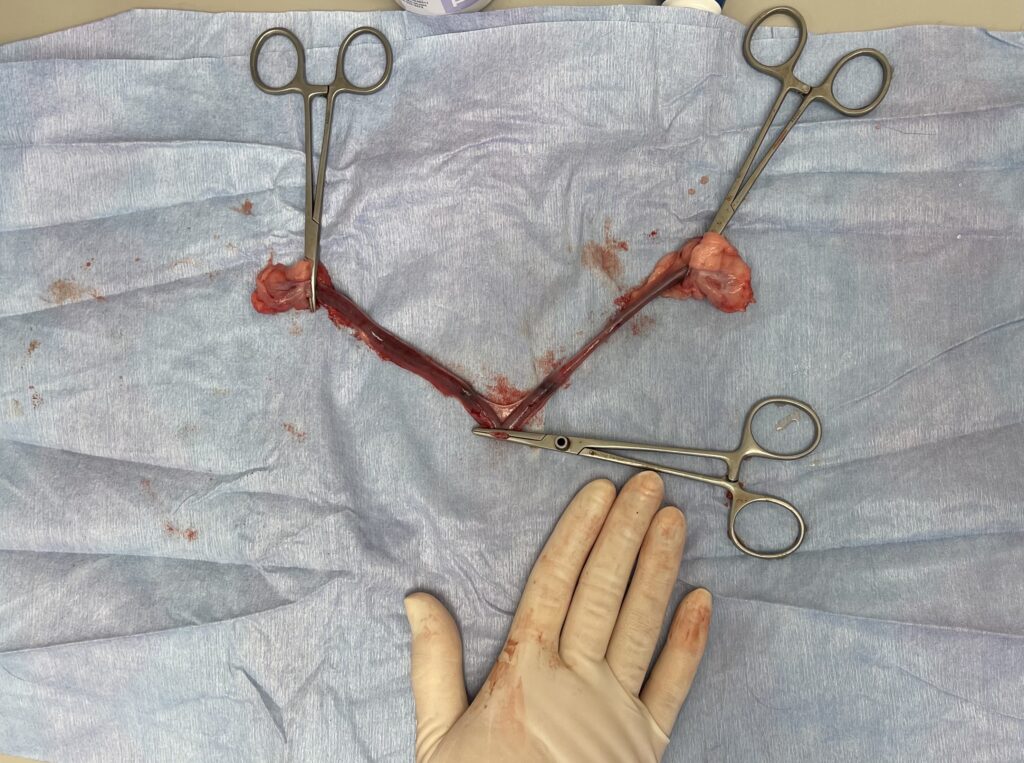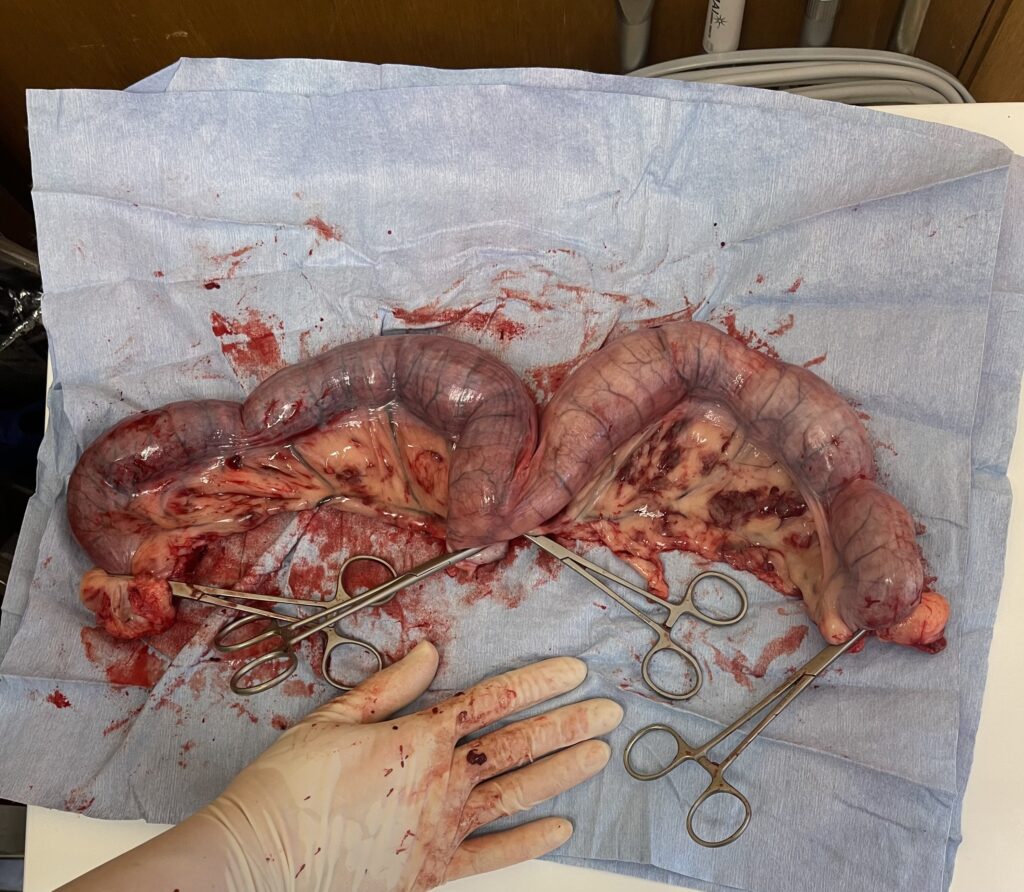This is Lucy’s story (name changed for privacy) of her pyometra spay. Lucy is a 9-year-old mixed breed dog that came to us because her heat cycle was going on longer than normal. Her owner noticed that she had heavier discharge than normal and it had a bad odor to it. Lucy just wasn’t acting like her normal self.
When Lucy came to see us here at Roseau County Vet Clinic, we diagnosed her with a condition called pyometra. A pyometra is a severe infection of a dog’s (or cat’s) uterus in which the uterus fills up with pus. This occurs most often in female dogs that are not spayed and haven’t had puppies before, but can also occur in dogs that have previously given birth. It typically occurs 2-4 weeks following a heat cycle. The infection is very serious, as the bacteria produce toxins and can affect multiple organs in the body. If left untreated, a pyometra most often is fatal.

Dogs with a pyometra sometimes have abnormal vaginal discharge like Lucy had. However, not all dogs with pyometra have discharge. Other signs include decreased appetite, lethargy, vomiting, diarrhea, and drinking excessively. Veterinarians often perform blood work and x-rays to help diagnose this condition.
Once a dog is diagnosed with pyometra, the best treatment is to spay the dog, removing the source of the infection. The dog will also need supportive care such as IV fluids, antibiotics, and pain medications. For valuable breeding dogs in which owners prefer not to spay, medical treatment is also available. However, medical treatment is not very effective, and can be risky for the dog.
After Lucy was diagnosed with pyometra, we went ahead with surgery to spay her. The surgery went smoothly with no complications. Lucy was able to go home with antibiotics and other medications to heal.


We rechecked Lucy two weeks later, and she was doing very well at home. She was fully healed and able to return to her normal activities.

Many people don’t know that approximately 1 in 4 non-spayed female dogs will develop pyometra in their lifetime. Lucy’s story had a happy ending, but not all pyometras end happily. This potentially fatal disease can be prevented by having your dog spayed. Here at Roseau County Vet, we recommend that all female dogs that are not going to be used for breeding should be spayed. If you want to learn more about spaying your pet, you can click on this link: https://www.avma.org/resources/pet-owners/petcare/spaying-and-neutering


